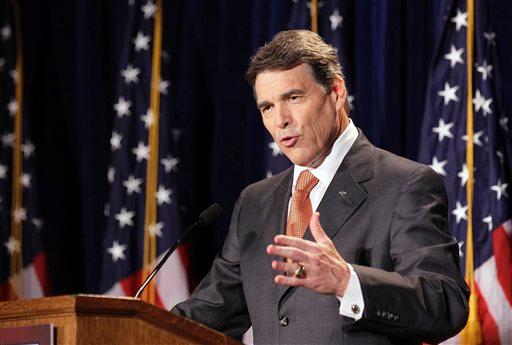
(Photo Courtesy of The Associated Press)
Higher education in Texas was a focal point of the state legislative session this year and re-elected Gov. Perry was in the thick of it all.
Perry has pushed for major higher education reform in Texas, releasing the “Seven Breakthrough Solutions” at his Higher Education Summit with all state university regents back in 2008.
Most of these solutions focused on making education cheaper and more accessible, but some fear that by developing a one-size-fits-all model that the value of a Texas education will be diminished.
SMU political science professors weigh in on what they see as the issues of Perry’s higher education plan.
“I think some of the problems he has identified are real and it’s good that he has initiated serious conversation about it,” associate professor of political science Matthew Wilson said. “But there are problems with the idea of a $10,000 education.”
One of the proposed solutions incorporates more online education into degree programs.
“The problem people see in that, is online education is less focused, and is often a less valuable and productive education,” Professor Cal Jillson said. “Are you going to make a college education so cheap that it is essentially useless?”
Wilson echoes Jillson’s views.
“I think there is real value in college contact and that in some sense you get what you pay for,” Wilson said. “I don’t think Texas will be well served by starting a race to the bottom.”
Another of Perry’s ideas is to make professors more cost-effective.
“I think his emphasis on teaching as a core mission of universities is on the right track. I think he is right to call our attention back to that,” Wilson said. “However, a professor’s worth should not be measured in how many students he teaches, but in how well he teaches them.”
Perry’s proposed solutions face criticism from both sides of the political spectrum.
“Cheapening education is a pretty dangerous move,” SMU College Republicans president Chad Cohen said. “Small classes and hands-on experience are part of the beauty of college. I’d like to see the governor be a little more sensitive to that.”
Texas College Democrats President, David de la Fuente does not believe that the governor places real value on education.
“Perry has been in favor of decreasing in-state college funding, cutting grants and loans for students, and letting tuition prices rise at a rate higher than any Governor in Texas history,” de la Fuente said.
Perry’s controversial ideas have some worried about what his ideology could mean for the country if he is elected president.
“First and foremost we need to remember that education is mostly a state function,” Wilson said. “Ironically, he may affect universities here less if he is elected. But I suspect he will try and reform the criteria on which the grant dollars are given out. His emphasis is on applied, practical research which will hurt the humanities and other social sciences.”
Jillson hopes Perry will focus on other areas.
“He could do a service if he pushed online education as well as regulation,” Jillson said. “If he were to improve online education and make it affordable I think it would be a good thing, but pushing people toward poorly designed online systems is a bad idea.”
“The bottom line is that while Perry has identified a lot of the problems with higher education, the solutions he has proposed are too simplistic,” Wilson said.














